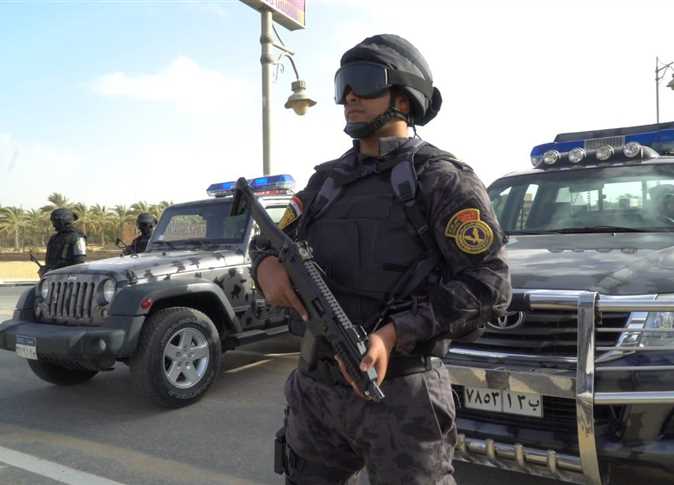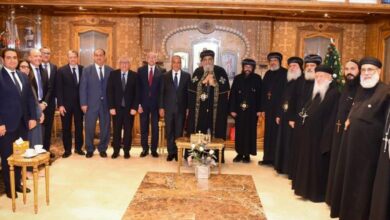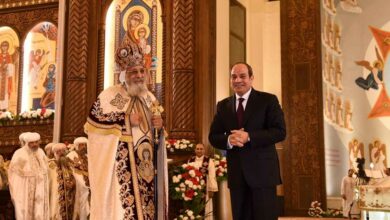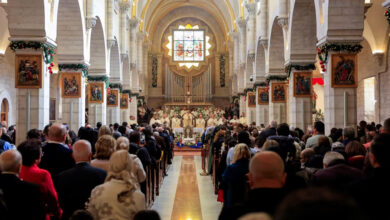
The security services of the Interior Ministry have continued to deploy in Cairo and the other governorates as part of a larger plan to secure the New Year and Christmas celebrations.
Security forces have imposed security barriers around churches, set up roadblocks in the streets leading to them, and tightened inspection procedures for visitors and pedestrians in coordination with the administrative security of each church.
The forces also checked on the activation of metal detector gates and CCTV cameras at churches.
The security services have deployed patrols at traffic axes, highways and public squares to be able to immediately intervene in case any emergency occurs. They have also set up security checkpoints near tourist destinations, public parks, hotels and malls.
Security leaders within the ministry supervised the security plans in the field, where all security directors and their assistants conducted inspection tours in their governorates to ensure the implementation of security plans.
The public security and national security sectors have formed working groups at various levels to implement security plans, which include the deployment of secret police in gathering places to monitor saboteurs before committing any crime and counter any attempts to disturb citizens.
Firefighters, bomb squads, traffic police, public and national security services, and criminal investigation units are deployed in front of churches, places of worship, streets leading to them, embassies, consulates and all vital places in order to secure a safe environment for citizens during the New Year and Christmas celebrations.
In Luxor, the security forces intensified their readiness in the vicinity of churches and tourist areas to implement plans to secure tourist and archaeological areas, places of worship, roads, and public squares.
Undersecretary of the Health Ministry in Luxor al-Sayed Abdel Gawad reviewed the necessary preparations in emergency clinics and medical staff to receive emergency cases.
In Minya, the security services deployed checkpoints in the archaeological and tourist areas, churches, and hotels, which have witnessed high demand of tourists to celebrate the New Year.
In Sohag, the security services completed their preparations to secure churches and public facilities in the various cities of the governorate. They also intensified their presence in a number of important streets in Sohag.
The security director of Sohag, Hisham al-Shafei, said that the forces were alerted to take the necessary measures towards stopping cars, motorcycles or vehicles next to churches and monasteries, and to notify supervisors if any suspicious cars or foreign objects are seen.
In 6th of October City in Giza, the security services have tightened their procedures in the vicinity of the Media Production City by means of explosive detection devices and the use of police dogs and secret police.
In Ismailia, Assistant Interior Minister for the cities of the Suez Canal Maj. Gen. Amjad Abdel-Fattah inspected the security points along the Suez Canal and the security services stationed at churches after being combed by explosives experts.
Abdel-Fattah pointed out that he decided to tighten security measures and intensify them at a number of points, including the Ahmed Hamdy tunnel in Suez, pointing out that the Suez Canal is a red line that must remain secure. He therefore increased the number of metal detectors and bomb squads at all points to secure the waterway.
Edited translation from Al-Masry Al-Youm




